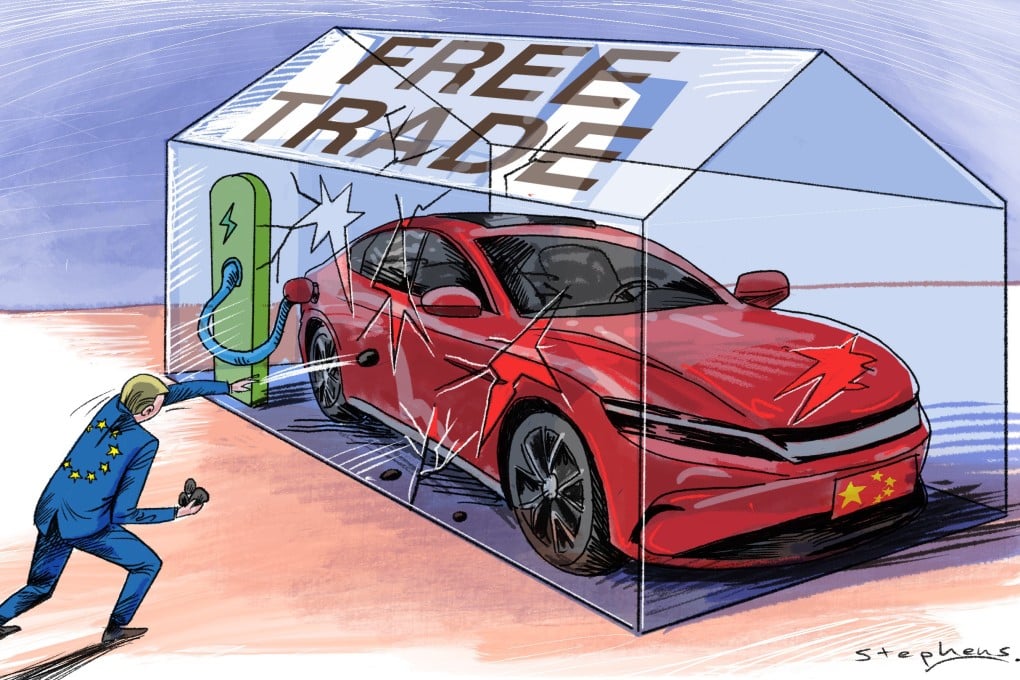Opinion | EU will lose more than it gains by raising tariffs on Chinese EVs
- If the European Union moves forward with tariffs on Chinese electric cars, it could prompt Beijing to retaliate against Europe’s aviation and agricultural sectors
- Instead of undermining world trade, the EU should talk to China to find solutions acceptable to both parties

Officially launched in October to address what the EU has framed as a market distortion resulting from China’s state subsidies, the investigation is widely expected to impose more duties on Chinese EVs.
These tariffs are seen in Brussels as necessary to protect Europe’s automobile industry. However, tariffs are likely to have unintended consequences that outweigh the benefits expected by those who are pushing for them.
Apart from potentially slowing the EU’s switch from gas-reliant vehicles to low-emission alternatives, the tariffs are an invitation for Beijing to retaliate. The bloc is not as innocent as it would like the world to believe when it comes to providing financial support to its industries.
As one of the largest agricultural subsidy programmes in the world, for example, the EU’s Common Agricultural Policy is known for its generosity towards the bloc’s farmers. Between 2014 to 2020, the policy had a budget of €408 billion (US$439.5 billion). For the 2021-27 period, €387 billion has been allocated to the programme.
The generous subsidy has enabled the EU’s agriculture sector to become an export machine. Last year, the bloc exported €14.6 billion worth of agri-food to China, against Chinese imports worth €8.3 billion.

